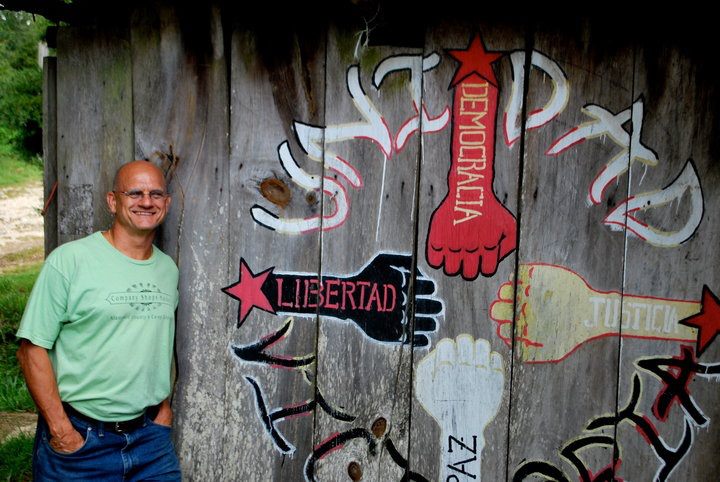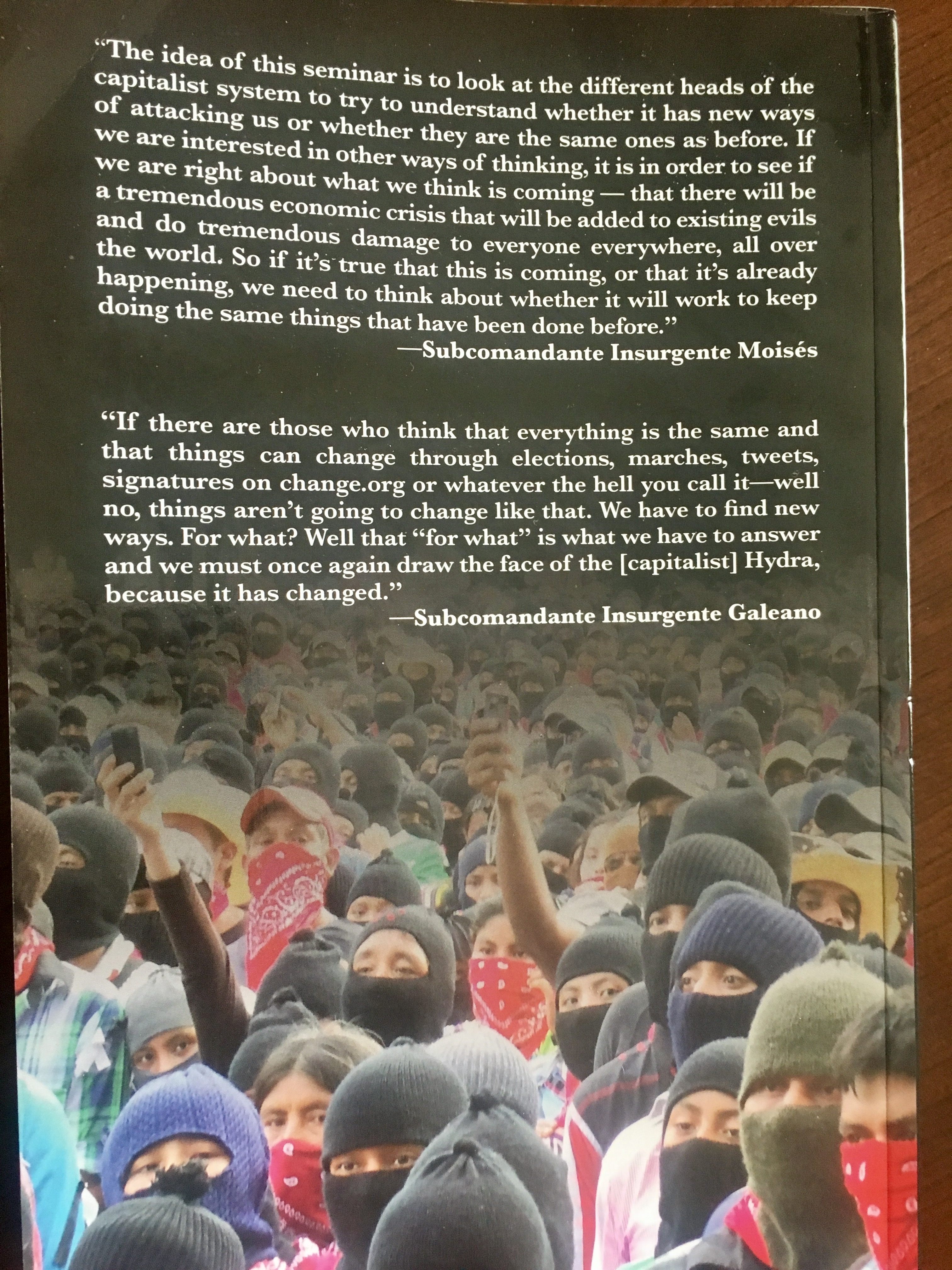Some (further) thoughts on the big picture
Unpacking the ‘big German philosophical guns’ in a blog post entitled From impact to transformation: Do-Gooders, Multicolored Saviors and development as lifestyle my colleague from Sweden Tobias Denskus points out that, “You can have ‘impact’ without social transformation, you can contribute to positive change while underlying social structures remain intac and you can ‘reduce poverty’ while inequality is rising at the same time”.
Yep.
In a post [warning: long read] turned into a chapter for Aid Worker Voices I give a theory-based and somewhat detailed look at the observation Dr. Denskus makes. I conclude that moving the needle forward permanently with regard to poverty/justice-related social issues is at best extraordinarily difficult and is indeed perhaps not possible.
Human agency – 0, the inexorable algorithm of capitalism – 1.
A charge from Marcos?
Twice I have had the privilege of visiting the symbolic home of the Zapatista Army of National Liberation o r EZLN in Oventic, Chiapas, Mexico. I have long been a consumer and student of the EZLN’s rhetoric, most particularly that of Subcomandante Insurgent Galeano nee Marcos. To say that the leadership of the EZLN has a deep understanding of capitalism and neoliberalism is a
r EZLN in Oventic, Chiapas, Mexico. I have long been a consumer and student of the EZLN’s rhetoric, most particularly that of Subcomandante Insurgent Galeano nee Marcos. To say that the leadership of the EZLN has a deep understanding of capitalism and neoliberalism is a n understatement.
n understatement.
For a quick view of the Zapatistas and of a small NGO that works in partnership with the EZLN look here.
Their struggle for the rights of indigenous people in Chiapas and around the world is, in my opinion, unmatched in terms of intellectual rigor, methodology, and sheer audacity.
Are the members of the EZLN ‘local aid and development workers’? Having spoken and worked with them and seen how their community meetings function I have so say an unqualified ‘yes.’
Recently SupGaleano argued “If there are those who think that everything is the same and that things can change through elections, marches, tweets, signatures on change.org or whatever the hell you call it — well no, things aren’t going to change like that. We have to find new ways. For what? Well that ‘for what’ is what we have to answer and we must once again draw the face of the [capitalist] Hydra, because it has changed.” (found in Critical Thought in the Face of the Capitalist Hydra: I: Contributions by the Sixth Commission of the Ezln)
The Hydra
His point -that globally the nature of capitalism and neoliberalism is ever adapting and changing and, most importantly, has many ‘heads’ with which to harm humankind- is simple, compelling, and important. Of course there are other forces at work, but downplaying economic determinism is, I feel, not an option. Want to understand well, anything about modern geopolitics? Follow the money.
One example of this ever-adapting hydra is the increasing reach and impact of corporate social responsibility initiatives and partnerships. The CARE-Cargil model is here to stay and will have deeper and more profound impacts in the coming years.
It is a point th at many of us know but easily forget or ignore. All of us find it hard to communicate that understanding especially now in a political landscape dominated by narrow minded and ‘thin’ populism. The reality is that too few people have the luxury of looking at the big picture because they are too busy existing day to day on a conveyor belt driven by a hydra that feeds on insecurity, avarice, and fear.
at many of us know but easily forget or ignore. All of us find it hard to communicate that understanding especially now in a political landscape dominated by narrow minded and ‘thin’ populism. The reality is that too few people have the luxury of looking at the big picture because they are too busy existing day to day on a conveyor belt driven by a hydra that feeds on insecurity, avarice, and fear.
One aid worker put it this way,
“I think humanitarian aid work operates within a system that is built on inequality – we won’t see large scale change happen in the lives of people, in terms of long term development, until we start to challenge the structures and systems that result in this inequity in the first place. And the heart of those institutions is within North America and Europe – until we recognize how dependent we are on the oppression and marginalization of others for our own betterment and benefit (i.e. access to cheap disposable goods, foreign foods and fresh imports, temporary foreign workers to fill low-income job vacancies, etc…), humanitarian aid work is just another cog in this bullshit machinery.”
Our charge
The question for all of us is how do we deepen our understanding of the existing neoliberal structures impacting humanity? Yet, even if we can ‘redraw the Hydra’, what then? From the SupGaleano perspective the answer is to re-stock our quiver with newer and better informed arrows, the assumption underlying this tactic is that the hydra can be defeated.
But can it?
I gave my answer to that above. What’s yours?
Feedback, trolling, snark or fan letters can be sent to me here.


 Follow
Follow